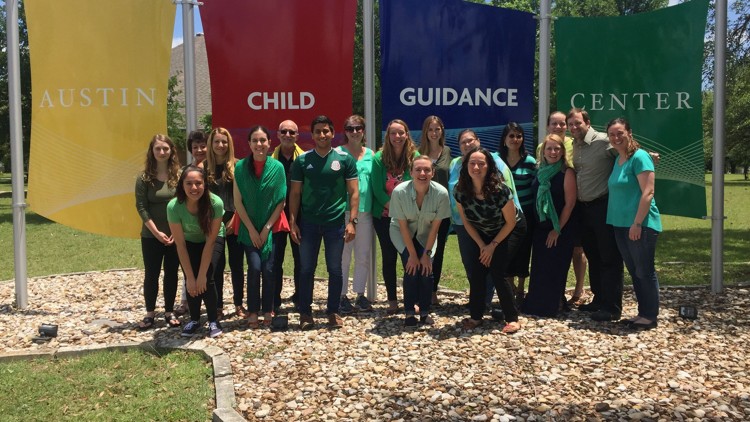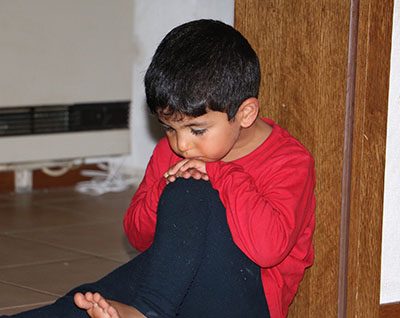
Share On Social!
Latinos comprise almost half of all youth in Austin, Texas.
These kids are more likely than their peers to deal with mental health issues, from fear of being deported to bullying to financial stress, according to a Salud America! Research Review.
And, sadly, these issues go largely untreated.
One group—The Austin Child Guidance Center—took notice and is trying to make a positive change.
“We’ve just been seeing a lot more fear and a general sense of unpredictability, which raises everybody’s anxiety level,” Julia Hoke, director of psychological services for the Austin Child Guidance Center, told the Austin American Statesman. “We want to be a counterpoint to that.”
The Austin Child Guidance Center
The center started a task force to meet the needs of their Latino clients.
Center staff work to improve mental health for 3,000 children and their families through early intervention, diagnosis, and treatment to help them develop the emotional skills for meeting life’s challenges.

First, that means serving in Spanish. They have seven bilingual care providers.
Second, that means addressing cultural issues.
Dr. Jose Miranda, psychologist at Austin Child Guidance Center, said stigma and faith beliefs often interfere with mental health care. Latinos have many questions about alternative medicine.
“I make it a practice to really talk openly about that,” Miranda told Austin American Statesman. “You have to be comfortable about being open to responding to those questions. Because if not, it’s going to be hard for them to open up to you.”
What Can We Do?
This kind of approach is working in others areas, too.
In Maricopa County, Ariz., the leaders of Adelante Healthcare System recognized that local residents continued to face cultural, language, and other barriers to proper primary and mental healthcare.
They felt compelled to change the entire approach of their system of clinics.
Adelante Healthcare began to seek grants and partnerships to add personnel to expand beyond their historical focus on primary care.
Today their new team—primary care physicians, specialists, bilingual health coaches, mental and behavioral health social workers, and others who connect families to insurance, health education, and more—provides personalized care that engages patients in preventing health problems.
“With this model we would have this extended care team that truly supports the patient,” said Lisa Blue, director of clinical programs, told Salud America!.
The Austin Child Guidance Center knows this all too well.
“It’s about lowering barriers and making all clients feel safe and accepted so they are actually able to heal and learn new tools to navigate through life’s obstacles,” Renee Hanson Malone, director of development for the center, told Austin American Statesman.
Explore More:
Mental HealthBy The Numbers
22
percent
of Latino youth have depressive symptoms, more than any other group besides Native American youth



